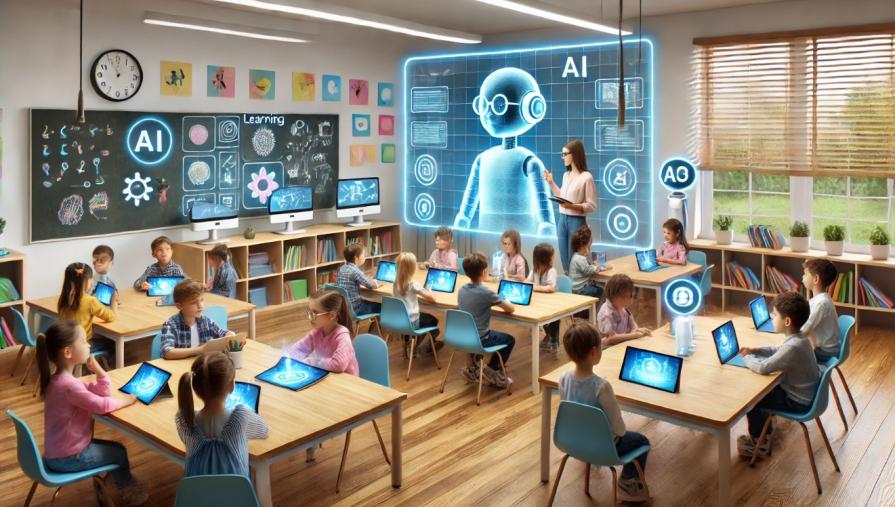Have you noticed how artificial intelligence has quietly entered our lives? It helps in finding information, suggests movies and music, calculates routes — and can even write a text like this. Artificial intelligence is no longer a science fiction, but a real part of our everyday life, and that is why it is worth thinking about teaching it at school: if children understand how these technologies work from an early age, they will be able to better navigate the modern world.

Conscious creators, not robots
First of all, don't worry, talking about AI is not about turning children into robots! On the contrary, AI gives them the tools to be creative. Imagine if every schoolchild had a little inventor who would see his ideas come to life. AI significantly broadens your horizons and allows you to consciously approach the study of the world around you.
Critical thinking
Teaching the basics of AI forms critical thinking in children: children begin to ask questions, try to understand how algorithms work, what data the neural network uses, and how it makes decisions. This ability allows children to avoid deception and manipulation in the future. Understanding algorithms is not only about how things work, but also about how to avoid the pitfalls of technology.

Academic load
Of course, we must not forget that schoolchildren are already overloaded, but there is a way out here: the basics of AI can be carefully integrated into existing disciplines such as mathematics, computer science, and social studies. These do not have to be separate subjects: for example, in mathematics lessons, students can study the basics of algorithms, and in computer science, elementary programming.
Teacher Upgrade
Now, perhaps, a seditious thought will sound, but... Teachers also need an upgrade. Yes, the request has been brewing for a long time — at least since the pandemic, when many teachers were forced to learn how to use conference calls and other online technologies. Of course, retraining will take time and investment, but the result is worth it, because if the teacher himself is passionate about what he teaches, he will be able to interest students, and motivated students learn the material much better. In principle, they learn it.

Inspiration and neural network
Many children lose interest in science, consider it boring. But once you show how AI solves real-world problems, everything changes! Nothing motivates as much as the visible result of their work - so children can feel like real explorers, ready to conquer new heights.
Investing in Education
The future is based on AI, and our children will quickly become active creators of that future. By investing in education today, we are taking a step towards a conscious and enlightened society tomorrow. Understanding the basics of AI will help children not only adapt to a changing world, but also be its architects. Teaching artificial intelligence in schools is not a luxury, but a necessity; we think that soon AI skills will become as basic as reading and writing. So it is worth starting now and give our children the opportunity to keep up with technology!









